Praise for Crimes That Changed Our World
Paul H. Robinson and Sarah M. Robinson relate captivating tales about how outrageous and highly publicized crimes produced legal reform and social change, usually for the better. Both specialists and novices will be fascinated by the role crime has played in improving our world. Douglas N. Husak , distinguished professor of philosophy and law, Rutgers University; author, The Philosophy of Criminal Law
By tracing the connections between so many significant legal reforms and the outrage over the crimes that provoked them, Paul and Sarah Robinson offer many important insights for those pursuing law reform at every level. Gerald F. Uelmen , professor of law and dean emeritus, Santa Clara University School of Law; board of directors, Catholic Mobilizing Network
What do the Triangle Factory Fire, Lindbergh kidnapping, Watts riots, attempted assassination of Ronald Reagan, and the Enron scandal all have in common? The answer, according to this fascinating book, is that the public outrage provoked in each case (as well as fifteen other cases discussed) led to a radical, and often sudden, legal reformincluding, respectively, the promulgation of building safety codes, federalization of criminal law enforcement, militarization of the police, changes in the insanity defense, and tougher enforcement of financial crime laws. In twenty absorbing chapters, the authors offer a broad sweep of history, legal and social analysis, and human drama. Stuart Green , distinguished professor of law, Rutgers University
A fascinating analysis of a remarkable range of criminal cases that, for better or worse, triggered significant changes in American law and policyranging from building safety regulations to the war on terror, from drunk-driving laws to financial crimes. The cases are described in vivid, often moving, detail, and their social and political significance through the public outrage that they provoked is illuminatingly explained. Antony Duff , professor emeritus, University of Stirling
Immensely readable and informative, Crimes That Changed Our World provides readers with an in-depth look at some of the most fascinating, tragic, and ultimately consequential crimes in the history of modern American criminal justice. From their effects on everything from building safety codes to the insanity defense to our modern system of 911, the authors show how a handful of salient and terrible crimes helped to transform the landscape of American criminal law in profound ways that are still feltand often hotly debatedtoday. Richard A. Bierschbach , dean and professor of law, Wayne State University Law School
Thomas Carlyle famously argued that human history boiled down to a chronicle of the achievements of outstanding individuals. In this fascinating and accessible book the Robinsons show that notorious crimes and disasters caused by stupid people or stupid laws have the potential to mobilize public demands for reform that lead to legal and social change. Sometimes the changes are for the better (like building codes), sometimes for the worse (three strikes sentencing laws), sometimes a mix of good and bad (enhanced drunk-driving laws) and sometimes, as with airport security efforts, one just cant tell. This book will be a valuable resource to those interested in law and social reform, and deserves a wider readership among all who want to understand the drivers of social change. Daniel D. Polsby , professor of law, Antonin Scalia Law School, George Mason University
Crimes That Changed Our World vividly recounts twenty infamous crimes that reshaped the lawfrom the triangle shirtwaist factory fire and the Lindbergh kidnapping to the Reagan assassination attempt and 9/11. The Robinsons combine careful research with fast-paced storytelling to reconstruct the impact each crime had on an indignant public. They also bring to life the reformers who skillfully channeled popular outrage into support for legal reforms with far-reaching consequences, most for good, and some for ill. A compelling read, this book is also an indispensable primer for aspiring reformers, showing how policy ideas can shape public perceptions of events to catalyze change. Guyora Binder , distinguished professor, Law School, University at Buffalo
Crimes That Changed Our World
Crimes That Changed Our World
Tragedy, Outrage, and Reform
Paul H. Robinson and Sarah M. Robinson
Rowman & Littlefield
Lanham Boulder New York London
Published by Rowman & Littlefield
A wholly owned subsidiary of The Rowman & Littlefield Publishing Group, Inc.
4501 Forbes Boulevard, Suite 200, Lanham, Maryland 20706
www.rowman.com
Unit A, Whitacre Mews, 26-34 Stannary Street, London SE11 4AB
Copyright 2018 by Rowman & Littlefield
All rights reserved. No part of this book may be reproduced in any form or by any electronic or mechanical means, including information storage and retrieval systems, without written permission from the publisher, except by a reviewer who may quote passages in a review.
British Library Cataloguing in Publication Information Available
Library of Congress Cataloging-in-Publication Data
Names: Robinson, Paul H., 1948 author. | Robinson, Sarah M., author.
Title: Crimes that changed our world : tragedy, outrage, and reform / Paul H. Robinson and Sarah M. Robinson.
Description: Lanham, Maryland : Rowman & Littlefield, [2018] | Includes bibliographical references and index.
Identifiers: LCCN 2017048534 (print) | LCCN 2017048633 (ebook) | ISBN 9781538102022 (Electronic) | ISBN 9781538102015 (cloth : alk. paper)
Subjects: LCSH: Criminal lawHistory. | Criminal justice, Administration OfHistory. | CrimeHistory.
Classification: LCC K5032 (ebook) | LCC K5032 .R63 2018 (print) | DDC 364.10973dc23
LC record available at https://lccn.loc.gov/2017048534
 The paper used in this publication meets the minimum requirements of American National Standard for Information SciencesPermanence of Paper for Printed Library Materials, ANSI/NISO Z39.48-1992.
The paper used in this publication meets the minimum requirements of American National Standard for Information SciencesPermanence of Paper for Printed Library Materials, ANSI/NISO Z39.48-1992.
Printed in the United States of America
Dedicated to
Ronald Gainer, a man of principle,
PHR
and
Juleann Miller, a force for good.
SMR
Contents
Acknowledgments
W e are very much indebted to many people for their help with this book, especially Mitchell Heyland, Daniel Atlas, Morgan Schusterman, and Melanie Young of the University of Pennsylvania Law School. Many very capable University of Pennsylvania undergraduate research assistants have also provided an enormous amount of help, especially Taryn MacKinney, Todd Costa, Jack Hostager, Pei Hsuan Sherry Tseng, Aaron Wolff, and Iman Charania.
We must acknowledge Silvana Burgese, Kelly Farraday, and Nesha Patel of Penn Laws Faculty Support Services for their endless help in the preparation of the manuscript; Edwin Greenlee, Merle J. Slyhoff, and Joseph Parsio of the Penn Law Library for their monumental efforts to find us all manner of materials, old and new, common and rare; and Penn Law deans Michael Fitts, Wendell Pritchett, and Ted Ruger for their unstinting support for this work. We are indebted to them all.
In the effort to make these issues accessible to the general reader, we asked some friends to read and comment on early drafts. We thank them all, especially George Sevier, Catherine McAlpine, Larry Cusack, Atticus Robinson, and Nancy Bray. We also had the good fortune to be found by Mary Whisner who volunteered to be our proofreader. John Alcorn, of Trinity College, in Hartford, provided a useful opportunity to explore these issues with an audience by making the book the subject for the 2017 Wassong Lecture.
Next page
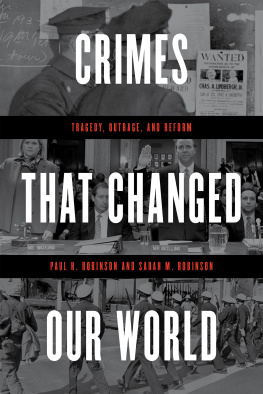
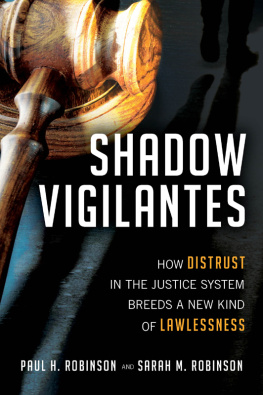
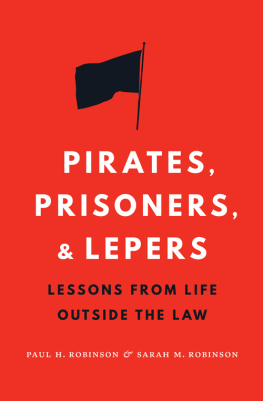

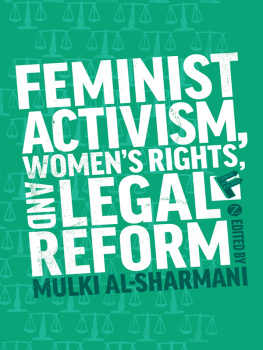
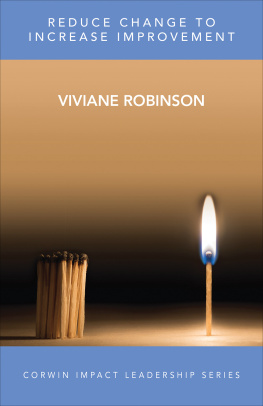
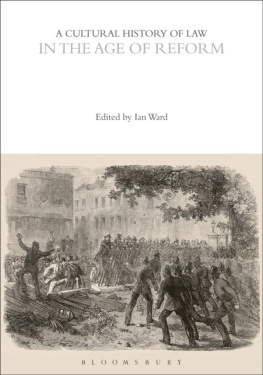
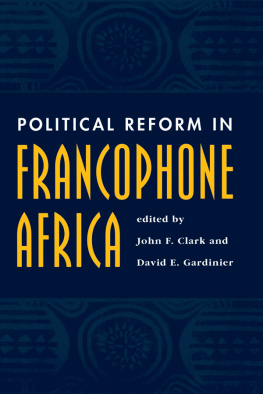

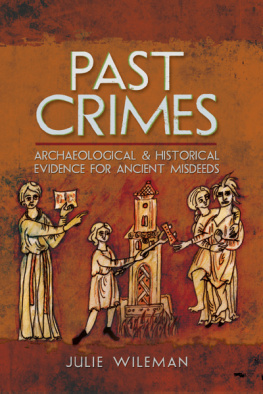
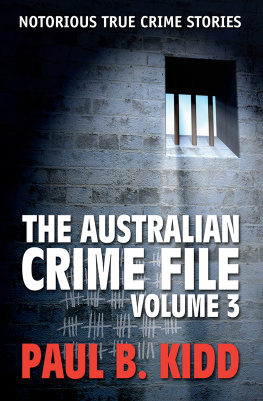
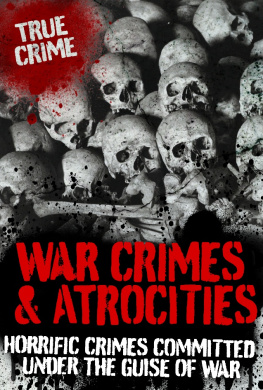
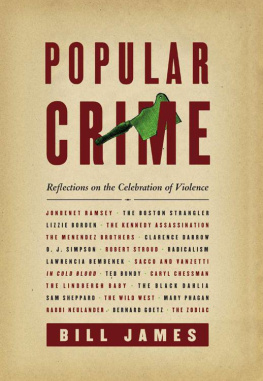
 The paper used in this publication meets the minimum requirements of American National Standard for Information SciencesPermanence of Paper for Printed Library Materials, ANSI/NISO Z39.48-1992.
The paper used in this publication meets the minimum requirements of American National Standard for Information SciencesPermanence of Paper for Printed Library Materials, ANSI/NISO Z39.48-1992.